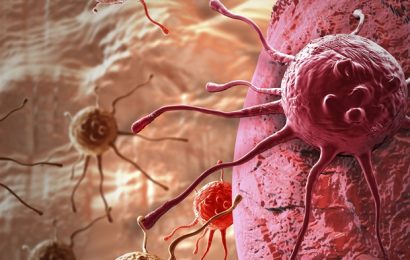(Reuters Health) – The majority of women with congenital heart defects can safely become pregnant and give birth to healthy babies, a new study in Germany suggests.
In an analysis of administrative data on 7,512 pregnancies in 4,015 women with congenital heart disease (CHD), researchers found that rates of maternal and neonatal complications were higher than in a matched control group, but absolute rates were still low and there were no maternal deaths. There was a small increased risk of stillbirths or neonatal deaths among women with CHD, and a six-fold higher rate of recurrence of CHD in infants, according to the report published in the European Heart Journal.
“The study is a message of hope,” said first author Dr. Astrid Lammers, a consultant pediatric cardiologist at Muenster University Hospital. “Only 50 years ago, 85% of children born with congenital heart disease would die before reaching adulthood. Today well over 90% survive to adulthood and many reach old age.”
The study results illustrate “that treated women with congenital heart disease – arguably one of the most severe forms of heart disease – can get through pregnancy and have a family of their own,” Dr. Lammers added. “These reassuring results are a testimony to the advances in congenital cardiology and cardiac surgery that allows most women with congenital heart defects to survive and live relatively normal lives.”
Nevertheless, Dr. Lammers advised that women with CHD who were planning on getting pregnant seek care from specialists.
“It is important that women with congenital heart disease are followed in specialist clinics and receive appropriate counseling and care from specialist before and during pregnancy,” she said in an email. “In the current era – in developed countries – the majority of women with congenital heart defects can get through pregnancy safely. While death rate is very low, complications to the mother are, however, relatively common. Complications are especially common in the newborn. (But) most of the problems of the newborns can be overcome with medical care, and neonatal support.”
To take a closer look at pregnancies in women with CHD, Dr. Lammers and her colleagues turned to administrative data from the BARMER GEK Health Insurance Company, which insures approximately 1 in 9 people in Germany and its members are representative of the population.
Overall, 25,585 women with adult CHD between the ages of 10 and 55 were included in the database. Of these, 4,015 had at least one pregnancy between 2005 and 2018. The researchers identified an age-matched cohort of 50,813 women without CHD who served as the control group, among whom 6,502 women became pregnant at least once during the study period.
Caesarean deliveries were more common in the CHD patients than in the control group (40.5% versus 31.5%). There was no excess mortality and maternal complication rates were low in absolute terms and mostly similar to rates in the control group. Women with CHD, however, had a statistically significantly higher rate of stroke (1.03% vs 0.17%) overall, particularly those with moderate-complexity heart defects (9.8 times higher than controls) and high-complexity defects (6.6 times higher).
Neonatal mortality was low in absolute terms, but still significantly higher in the CHD group (0.83% vs 0.22%). Moreover, neonates whose mothers had CHD were more likely to have low birth weight (7.54% vs 5.25%) and extremely low birth weight (1.01% vs 0.53%), or to require mechanical ventilation (8.74% vs 3.57%).
Children of women with CHD were also more likely than those in the control group to have Down syndrome (0.91% vs 0.21%), other genetic syndromes (1.16% vs. 0.31%), a CHD code recorded (17.7% vs. 2.9%), and a need for heart surgery with heart-lung machine support by age 6 (5.95% vs 0.39%).
Significant predictors of adverse neonatal outcome included maternal defect complexity, arterial hypertension, heart failure, prior fertility treatment, and anticoagulation with vitamin K antagonists.
“The most important thing we should take from this study is that there shouldn’t be quite as much hesitation about women with congenital heart disease becoming pregnant and bearing children,” said Dr. Ari Ceders, an associate professor of medicine and pediatrics at the Johns Hopkins Hospital in Baltimore. “There has been a lot of fear that outcomes might be quite poor.”
The article adds to the growing evidence suggesting that these women can live a normal life and achieve all of life’s milestones, Dr. Ceders said.
Nevertheless, there is a small group of women with CHD who would be at greater risk, Dr. Ceders said. They include women with severe aortopathy, pulmonary hypertension, severe left-sided valvular heart disease, or significant dysfunction of the left ventricle.
While women with CHD can safely become pregnant and give birth, they should be followed at specialized centers, said Dr. Arvind Hoskoppal, director of the adult congenital heart disease program at UPMC in Pittsburgh.
Because of the heightened risk for complications, “the women should get preconception counseling,” Dr. Hoskoppal said. “Risk stratification and medical management is important.”
Still, Dr. Hoskoppal said, there are “rare instances in which we advise against pregnancy because the women would be risking their lives.”
SOURCE: https://bit.ly/3vaumEa and https://bit.ly/3DMVSed European Heart Journal, online October 12, 2021.
Source: Read Full Article


